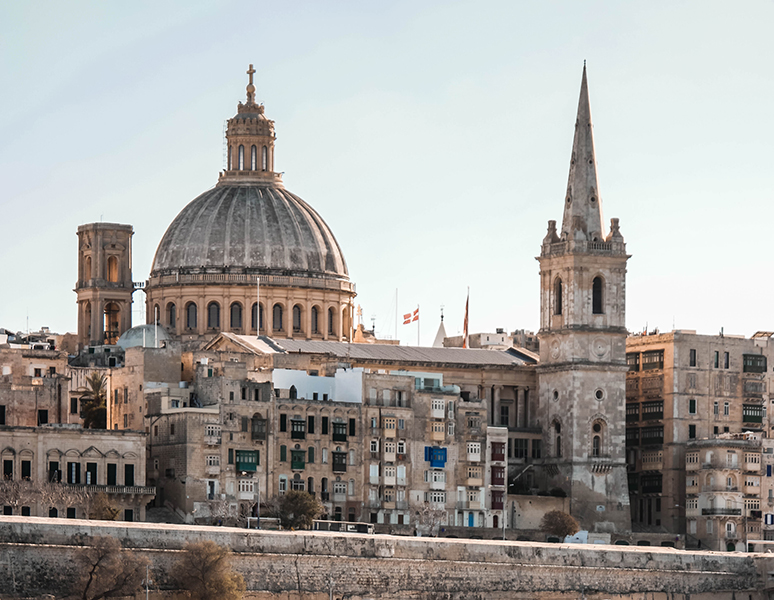In an era marked by rapid change and increasing uncertainty, long-term planning is no longer a luxury, it’s a necessity. Vision 2050 is Malta’s ambitious attempt to rise to this challenge. It offers a strategic framework that promises to align economic growth, social well-being, and environmental stewardship under one cohesive national agenda. But for this vision to move beyond glossy reports and political platitudes, we must confront the real issues holding Malta back and be bold enough to seize the opportunity for transformative change.
Malta’s remarkable economic progress over the past two decades has brought with it undeniable benefits: increased employment, stronger public finances, and an economy that is nimble and diverse. But this progress has also exposed critical structural cracks; overburdened infrastructure, environmental degradation, education-system mismatch, and widening inequality. Vision 2050 is an opportunity to acknowledge these cracks and lay the foundations for a new social and economic contract.
The document rightly reframes success, shifting focus from narrow GDP growth toward broader indicators such as well-being, sustainability, and quality of life. Yet, Malta’s path to 2050 will not be determined by visions alone; but by the courage to act on what we already know needs to change.
The Case for Structural Reform
Any serious national vision must confront structural inefficiencies. Malta’s public governance remains overly centralised and reactive. The size and role of parliament, the part-time status of MPs, the opacity of public appointments; all demand honest, depoliticised reform. We cannot build a future-ready state with a governance model rooted in
the past.

Moreover, the education system; so often mentioned, yet so rarely reformed, continues to fail a generation of young people. Curriculum reform, teacher development, and alignment with tomorrow’s labour market are urgent imperatives. No vision can succeed if our human capital remains underdeveloped.
Health, Equity, and Human Development
One of the most promising elements of Vision 2050 is its emphasis on quality of life. This cannot be achieved without overhauling the health system. Malta must pivot from reactive, hospital-based care to a proactive, prevention-driven health strategy. This includes addressing the rise in metabolic diseases such as diabetes and obesity, tackling cholesterol and lifestyle-related illness through public education, food system reforms, and
access to nutrition.
Mental health, often stigmatised and underfunded, must become central to our national health discourse. Equally, sexual health, still considered taboo in many quarters, requires urgent attention and integrated services. A healthy population is the backbone of a resilient nation, and wellness must be mainstreamed across all policy dimensions.
Transport, Housing, and the Urban Challenge
Malta’s small size should be an advantage. Yet, congested roads, poor urban planning, and unaffordable housing have created an environment that feels increasingly unsustainable.
Vision 2050 proposes more efficient use of land and the promotion of sustainable mobility. These are commendable goals; but success hinges on implementation, enforcement, and the ability to transcend short-term political incentives.
A genuine mobility strategy must invest in mass transit and reduce car dependency, while housing reform must address speculation and supply in a way that upholds dignity and affordability.
The Green and Digital Opportunity
Malta stands at the intersection of two transformative global trends: the green transition and the digital revolution. Vision 2050 rightly identifies both as strategic enablers. But the transition must be more than symbolic. Becoming a climate-resilient, digitally enabled island means investing in renewable energy infrastructure, digitising public services, and building skills in AI, data, and cloud technologies, especially among the youth.
Done right, this could unlock new industries, attract international investment, and create high-value jobs. But it will require substantial coordination, investment, and above all, a mindset shift from political cycles to generational responsibility.
A Vision Built on Participation
Perhaps the most significant promise of Vision 2050 is that it is being presented as a national, not partisan, project. For this to be true, civil society, businesses, youth, and citizens must be meaningfully engaged. Malta needs a genuine social pact; one that is not signed in a backroom, but forged in open dialogue, compromise, and shared sacrifice.
This vision must be monitored, measured, and held accountable. A dashboard of key metrics and regular progress reviews will be essential to ensure that promises made are promises kept.
Building the Malta We Deserve
Vision 2050 is a step in the right direction. It captures the ambition Malta needs. But it must be matched by political courage, citizen engagement, and a willingness to break from business as usual. The path ahead will not be easy; change never is. Yet, if done right, this can be Malta’s moment to redefine its future, not by chance, but by choice.
We owe it to the next generation not just
to dream big, but to deliver.


